The older I get, and as my kids get older, I better understand what it means to leave behind quality work.
An actor’s physical metamorphosis is always fascinating, traveling away from themselves the way they do, sometimes to extremes. It’s pyrotechnics that’s often taken as tangible evidence of their talent and commitment to the craft. Of the many actors who’ve packed on mass or lost it all in recent memory, few have taken to the task with such zeal as Beau Knapp, having gone from being “really heavy” in Karyn Kusama’s Destroyer to, well, not, in Filip Jan Rymsza’s Mosquito State, then getting shredded for Peacock’s The Lost Symbol. And beyond the bodily limits actors push past is the immeasurable: invisible athletics—mental prep that steel them for what’s coming next.
In John Swab’s revenge thriller Little Dixie, Knapp steps into a role that’s in many ways a fusion of the characters he has previously portrayed. Raphael “Cuco” Prado is a burly drug cartel enforcer who’s as soft-spoken as he is bloodcurdlingly ruthless. “Cuco” translates to “boogeyman,” after all. When a deal goes south between a corrupt governor (Eric Dane) and a Mexican drug lord (Maurice Compte), ex-special forces operative Doc (Frank Grillo) is caught in the crossfire. When his family is roped into the danger, Doc must take down the cartel—namely, “Cuco”—and do whatever it takes to protect the one remaining light in his life: his daughter, lovingly nicknamed “Little Dixie.”
Next up for Knapp are Jeff Nichols’ The Bikeriders and Doug Liman’s Road House.
For this inaugural edition of Anthem’s new on-going series, Porchlight Sessions, we go homeward bound—to Knapp’s own backyard in Dripping Springs, Texas, for a photoshoot and conversation.
Little Dixie opens in select theaters, and on Digital and On Demand, on February 3rd.
So what was your connection to Dripping Springs when you decided to move out here?
I’d just finished The Lost Symbol in Mississauga, Ontario, we’d sold our house in LA, and we didn’t know where to go. My buddy, Theo Rossi, had actually told me a couple years before, “You gotta move to Dripping Springs. It’s beautiful. It will change your life.” So I asked him if he had a realtor and, honestly, we did a Zoom walkthrough of the house. We were in Texas two weeks later.
Kind of spontaneous.
It was a quick move. We didn’t know if we’d like it or not, but we’re really enjoying it.
Theo’s a good guy. I did an editorial with him in New York City years ago.
Yeah? We took on American Skin together, the Nate Parker film. We had such a great time on that.
If I know anything about Dripping Springs, it’s because I looked it up, obviously. I learned that it’s the wedding capital of Texas. That makes sense. Do you have some local haunts?
A few good bars and hangouts, for sure. It’s got the small town Texas vibe. I think the sign still says 1,600 people. It’s like going back to the ‘60s. It looks like nothing’s changed. I love it.
A lot of breweries.
That’s the genius part about Texas, at least where we are. There’s all these breweries and distilleries everywhere, with playgrounds. Parents can go enjoy barbecue and a drink, and the kids can play.
You travel a lot for shoots so it must be a very centering place to come back to. It’s home.
There’s something about flying into the airport that’s very calming compared to JFK or LAX or whatever it is. It is very peaceful. I’m not in Austin so it does still have that small town feel to it.
I know you’re originally from LA, but I sometimes mistake you as an East Coaster. I think it might have something to do with the fact that the first time I ever saw you in anything was in Mosquito State, against the backdrop of Wall Street and skyscrapers. It’s funny what movies do. It creates this false impression of someone, bleeding out of the frames a little bit.
Right? Well, my whole family on my father’s side is from Brooklyn. My father moved me around so much when I was a kid—New York, Virginia, Colorado. I got roots over there, for sure.
Let’s get into Little Dixie. I told you how much I enjoyed this film, and Cuco is fantastic. He is terrifying, but not at all the one-dimensional villain you might expect. I like that he’s this hulking, menacing presence with an undercurrent of vulnerability. He’s soft-spoken, almost talking in whispers. What did you make of him? Born evil? A product of his environment?
He’s definitely a lot different than the character you saw in Mosquito State.
I’ll say.
But I have to say, I haven’t seen the film yet. I’ve only seen bits and pieces. As for Cuco, I know the character well. He is the boogeyman for a lot of people. He is this brutal enforcer for the cartel. He does things his own way and leaves trails of blood behind. But he hides behind his shades. He went through this traumatic event as a child with his mother and he was raised in a violent, violent environment. I think he was stunted at 10, 12 years old and stayed in that mentality. He just became this emotionless human being. Underneath it all, like you said, he is very vulnerable, and Little Dixie gets to see that for a minute. Not very many people do. I think he was raised wanting to satisfy everybody around him, and to be the baddest, so he will do just about anything to be that.
It’s a great payoff when you finally remove the shades because you’re literally wearing them throughout the entire film. We want the eyes, ultimately. That’s how we’re getting through.
That was a brilliant thing by John Swab. We were crafting this character together in pre-production and he’s like, “I don’t think he takes the shades off. No, there’s just this one moment that he should. It’s his armor.” It’s wild doing all these scenes and trying to find other ways to express yourself.
You’ve played, in your own words, “a lot of bad dudes” over the years. Are your children old enough to watch these movies? And what do they make of your onscreen transformations?
My wife can’t even watch my movies. [laughs] She’s not one for blood and all that. A lot of people have asked me, “When are you gonna play a good guy?” I just feel like, somebody’s gotta do it and I enjoy it. I think the only thing my children have seen is the first film I ever did, Super 8, which is kind of a kids film. Maybe when they’re a little older, they’ll be able to see some of the other stuff.
They have movies to look forward to when they’re age-appropriate. This inevitably becomes a talking point when you come into fatherhood: priorities change. Maybe they’re not so willing to do certain things anymore, and maybe they’re more open to exploring other stuff. Maybe you’re not gonna go off for months on a shoot if it’s not absolutely worth your while.
Totally. With something like Little Dixie, I don’t think I could go too much further than that. This guy is a brutal, awful person, you know? If I ask my wife for acting advice, she always wants me to play a good guy and do something different, and I think I will. I think there will definitely come a time as my children get older that I will wanna switch it up and do something that they could be proud of. When I go to pick them up at school, the parents will say, “You’re Eleanor’s dad, right? You’re the one that acts in PG-13 movies? We can’t watch them.” [laughs]
It was interesting getting to know you at the backend of Mosquito State because you had already bulked up for The Lost Symbol. You also said you’d put on mass for Destroyer before taking it off again for Mosquito State. The shape-shifting has become such a thing with you that I wonder if this goes beyond the creative into something more personal.
I feel like I have to earn it, and to do that, it’s by gaining or losing weight, or feeling strong or whatever it is. My wife hates it, but I feel like it’s necessary for some reason. I have to earn every right to play these roles. It’s always the very physical that helps me mentally to portray characters.
It’s effective in Little Dixie. I can really feel the weight of your body, in your gait even. How much of that needed engineering? When your body changes, you carry yourself differently.
Naturally, the bigger you get or the stronger you feel, you definitely walk around with it and you can feel it. I’m kind of right in the middle of it right now: wanting to bulk up again ‘cause I lost some weight for this recent film, The Bikeriders. When I was between finishing The Lost Symbol and going on to Little Dixie, I was losing weight, but still heavy. I still felt the weight of that character. Cuco is just that guy with his guard up. Kill or be killed, always. That’s who he is.
Going beyond the physical, Cuco is a life-long misfit. He talks about his stepmother never having accepted him for being lighter-skinned than his stepbrothers. So when he hooks up with the drag queen, I didn’t necessarily see it as a thing about sexual orientation. I thought maybe he is starved for connection, or a warm body. What did you intend to portray?
John and I went over it. It is a connection thing. I feel like Cuco doesn’t really have a specific taste in who he chooses to be with. It’s all instinctual. And he actually really cared for Misty [played by Mark Ward] before he kills her. That’s what makes the moment so sad. Then that leads into his conversation with Little Dixie about his mother where he actually lowers his guard.
Did you have an easier time shedding Cuco compared to Richard on Mosquito State? I remember you saying that you carried Richard around a little bit when it was all over.
Every role takes a few weeks to shake. That’s a good question… Hmm, what did I do with Cuco? I went home after that for Christmas so I had to get rid of that shit before I saw my family and my kids. But I think that’s a cool part of acting, too. You’re just doing these things that stay with you.
This is your second film with John after Ida Red. He came on my radar with Run with the Hunted and that’s when I learned that his films are very much based on themes from his personal life. At 15, he ran away from home and lived on the streets with criminals. There was abuse in his past. He’s in recovery. This is all stuff he’s talked about in the open. Maybe Run with the Hunted was more autobiographical, but since he wrote Little Dixie as well, I got curious about any autobiographical elements Little Dixie might have. Did he talk about that?
John never told me what personal stuff he’d been through that made him write Little Dixie. But I know he ran with people like Cuco. He spent time during pre-production in Tulsa hanging out with people from the cartel and seeing how they operate. That’s what I love about Little Dixie, too. It’s such a wild story and way bigger than Ida Red. It’s an expansion on what John’s capable of. He’s one of the most talented directors, still in his thirties. I love every minute of working him.
He’s prolific. Candy Land just came out recently, too. He has a distinct point of view.
Totally, you’re right. He’s constantly searching and telling these stories. He has to tell these stories and explore these characters. There’s moments of greatness I see in him. He’s just a killer, you know? If you ever meet John, he’s a very intimidating dude. But he’s also this gentle soul with a huge heart. I know he’s gonna do amazing things. We’re doing our third movie in March.
What’s that one called?
There’s no title right now. But we’ll be out in Tulsa in a month.
He’s a proud Oklahoman, I do know that about him.
He has done every film out in Tulsa except for Candy Land, which was in Montana. That guy should have the keys to the city. [laughs] Born in Tulsa. He is Tulsa.
He has good reason for doing that, right?
If you’ve ever been to Tulsa, it’s such a cinematic-looking city. Tulsa has a very special, gritty quality to it that John loves, and it’s forgotten in a way. To me, it’s a ghost town almost. A lot of our favorite films like Rumble Fish and The Outsiders were filmed in Tulsa. One of our guys from John’s movies, Danny Boy O’Connor, owns The Outsiders House Museum. He bought the house from The Outsiders and renovated it to look exactly like it was in the movie. It’s such a cool place.
You also have a frequent collaborator in Frank Grillo. You must be close buddies by now.
Of course. I have so much respect for Frank. He has always championed me. He was the first person I called when they offered me this role. I’m like, “Can I do this?” and he’s like, “Yeah, you can do this,” which gave me the confidence to be able to go and really do this outside-my-comfort-zone character. We’ve done three movies together now and we always have a good time.
And poor Eric Dane in this movie. The severed head is comedy, right? I’m not a psychopath?
[laughs] He’s so talented. Like I said, I haven’t seen [Little Dixie], but I know his work is brilliant.
I wonder if Eric got to keep it.
I’m sure that head is hanging out in John’s bathroom or something. It’s somewhere it shouldn’t be.
Do you keep things from sets?
Sometimes they’ll let you, if it’s not rented from Western Costume or something like that. You know, I have the Cuco shades right here. I thought I should keep those shades.
That’s a good one. So now you’re gonna go off and shoot with John again. You also have other films in the can, including Jeff Nichols’ The Bikeriders and Doug Liman’s Road House. I don’t know how much you can divulge here. How did you get involved with those projects?
Well, I did Road House first. Joel Silver, a legendary producer, always fought for me my whole career. I did Shane Black’s The Nice Guys with him. Joel has always been like, “I gotta put Beau on something.” So I guess he reached out and wanted me to be a part of that film and, of course, as one of the bad guys. [laughs] You know, trouble. We had a blast shooting that in the Dominican Republic. It’s my third movie with Jake Gyllenhaal. I love Jake. Billy Magnussen, Arturo Castro—a great line-up of people. I don’t know what I can say about it… It’s definitely a re-imagining of the original. You get flavors of the original, especially with the character that I play.
The Bikeriders is super exciting. Jeff Nichols is a legend. That guy doesn’t miss. Tom Hardy, Austin Butler, Michael Shannon, Norman Reedus, Karl Glusman, Emory Cohen, Jodie Comer, Happy Anderson—a spectacular cast. This is his most solid cast. Everywhere you look, you’re like, “Holy shit.” Toby Wallace? That kid is insane. He’s such a great actor. We just made this 1960s motorcycle film. I had to audition a bunch. Brian Kavanaugh-Jones is another producer that I knew. I had done The Signal, Destroyer, and Sand Castle with him. So it’s always like a family affair kind of thing, you know? He fought for me, definitely. I’d actually been home for four months just hanging out with the kids in Texas when I got a job and went to New York, and the next day, they called me: “Hey, when can you get back to Austin? Jeff Nichols wants to have lunch with you.” Right away, I flew back. I had lunch with him and got the role. It’s gonna be one incredible film.
Without knowing everything that happens behind the scenes, apart from what you’re telling me, the fact that you have these longstanding relationships and these people championing you is enough to convince of the kind of special talent you are. You’re wanted.
Thanks, man. It’s definitely about relationships in this business a lot of the time, if you enjoy each other and you aren’t an asshole… [laughs] We have a good time. I’ve been so blessed to work with such brilliant people, and to continue working. I’m a lucky guy.
Do you find yourself zeroing in on anything in particular nowadays? There’s the script, the director, potential co-stars, where you might be displaced to—all of it. But what are the things that really gets you going on a project, and maybe things that take you out of it?
Lately, it’s about moving the needle forward for my career, doing different and original things to push the envelope. For me, it starts with the script, of course. If the script’s good, I don’t really care who’s in it ‘cause I know it’ll be good—hopefully. After Little Dixie, and after all these kinds of things, I definitely want to do more TV. Again, I’ve been so lucky to be able to work with such brilliant directors. If one of ‘em calls, I’ll be on the next plane. And the older I get, and as my kids get older, I better understand what it means to leave behind quality work. At the end of the day, it’s about moving the needle forward, quality work, and not being away from my people too long.
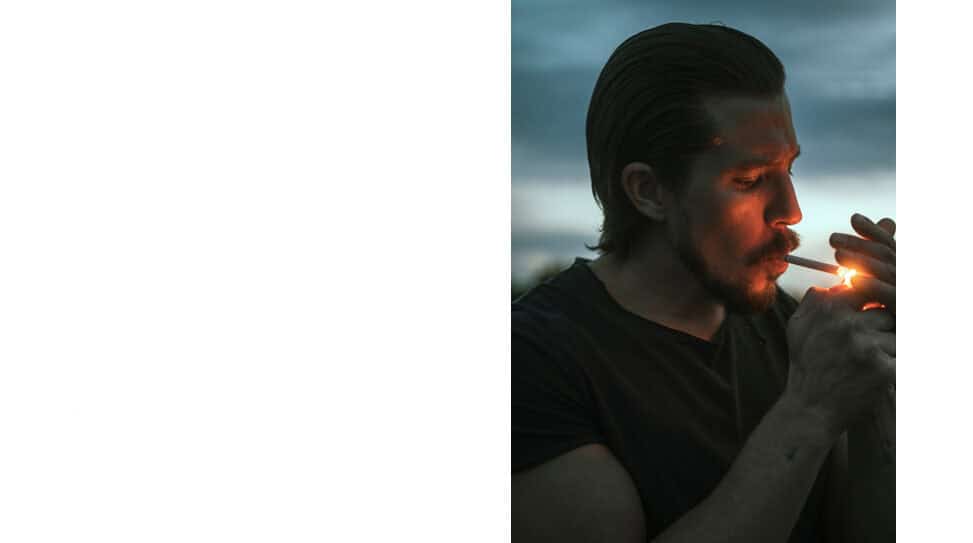

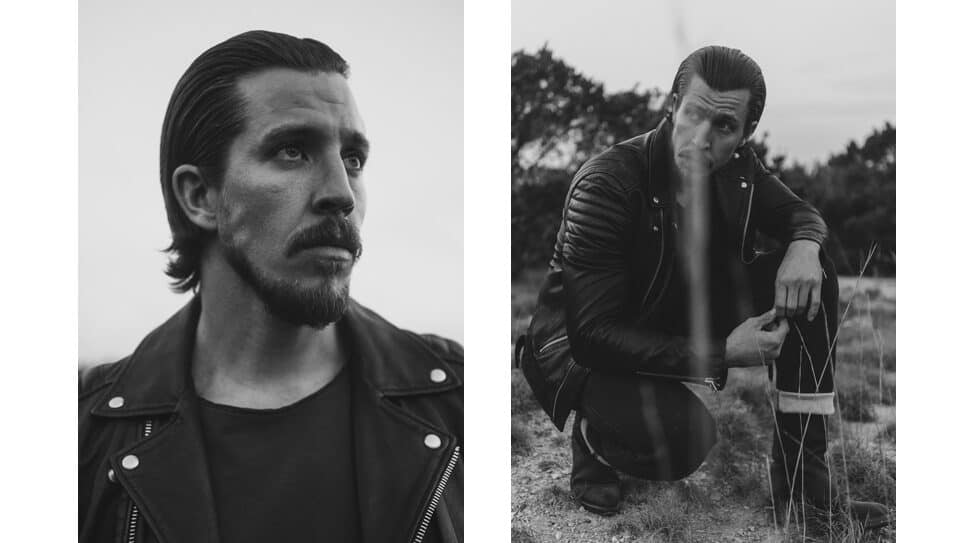
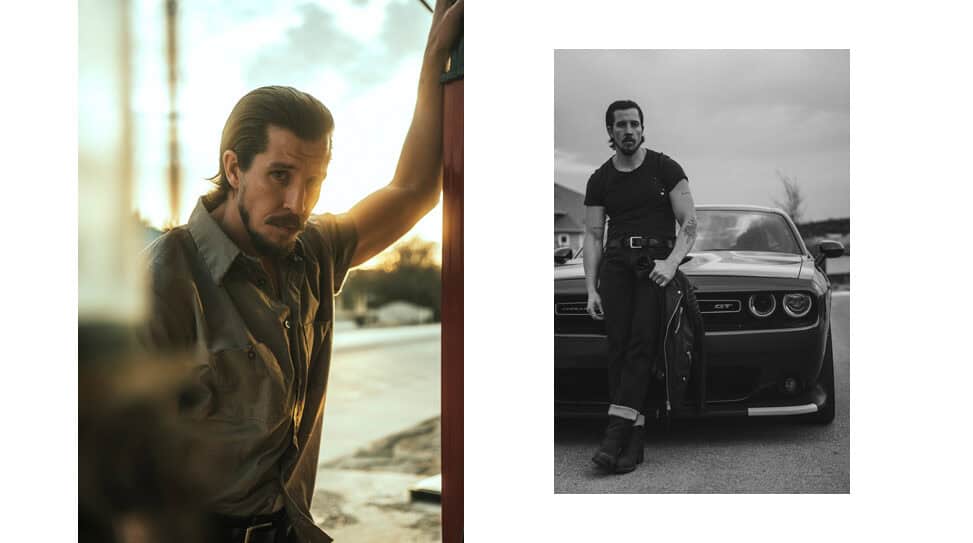
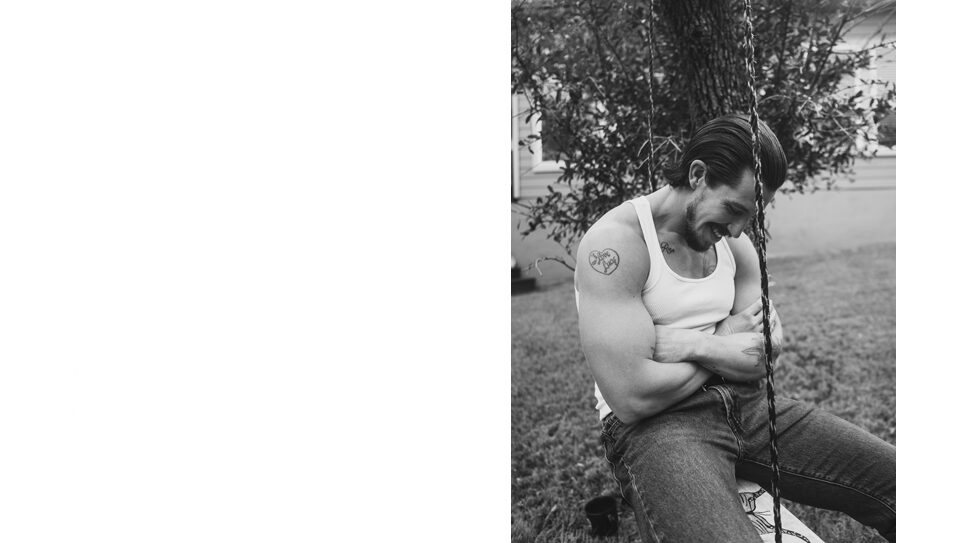
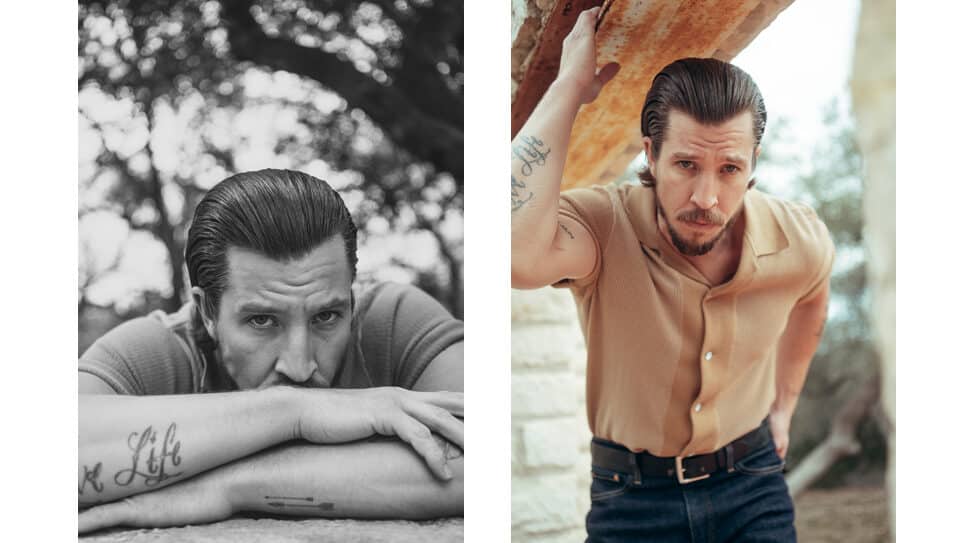
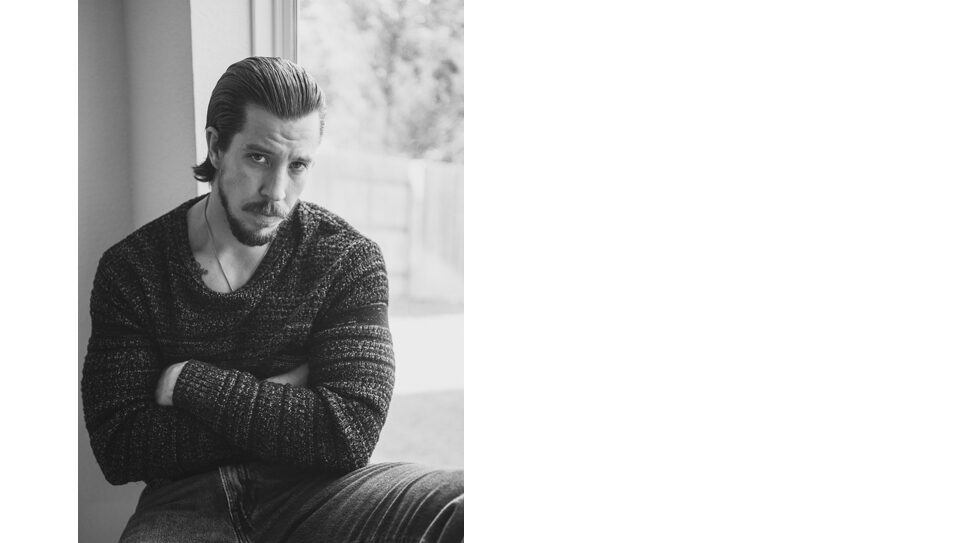
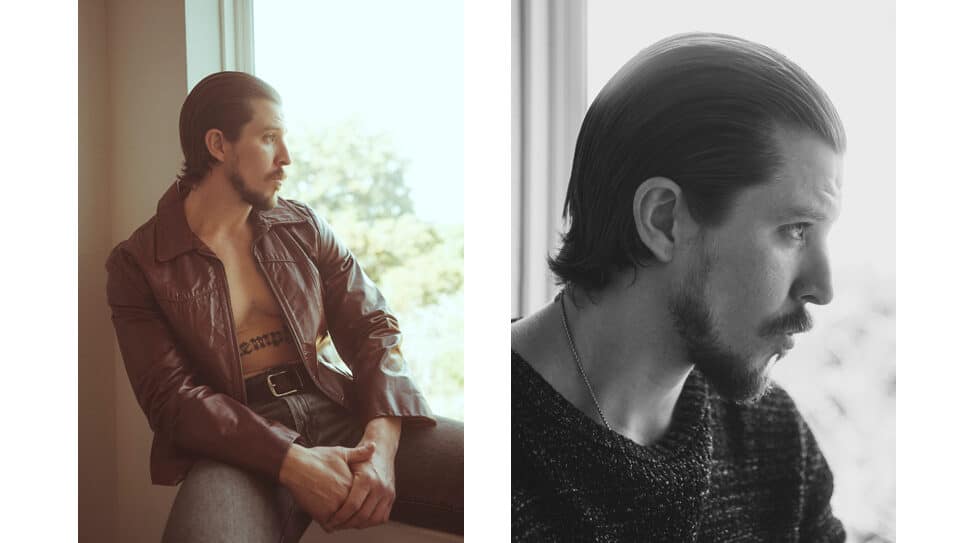
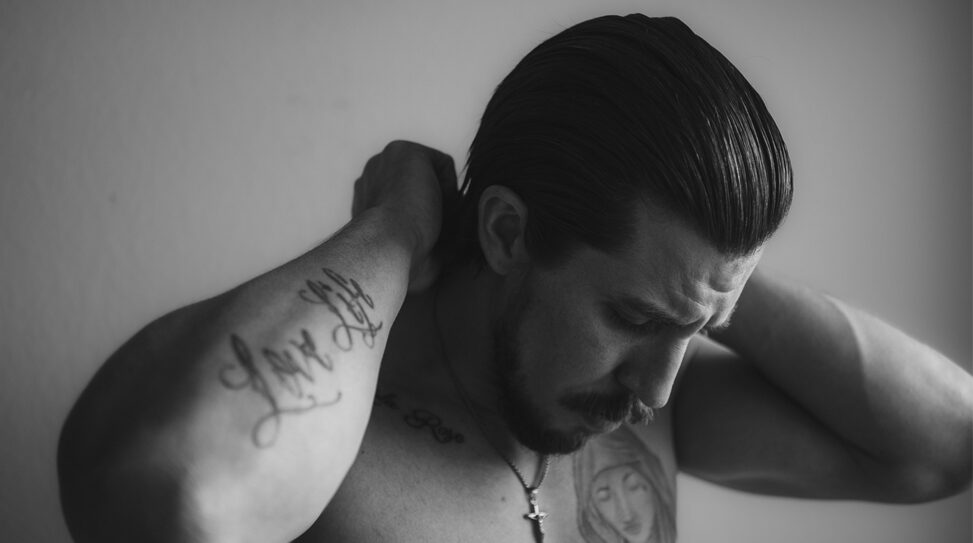
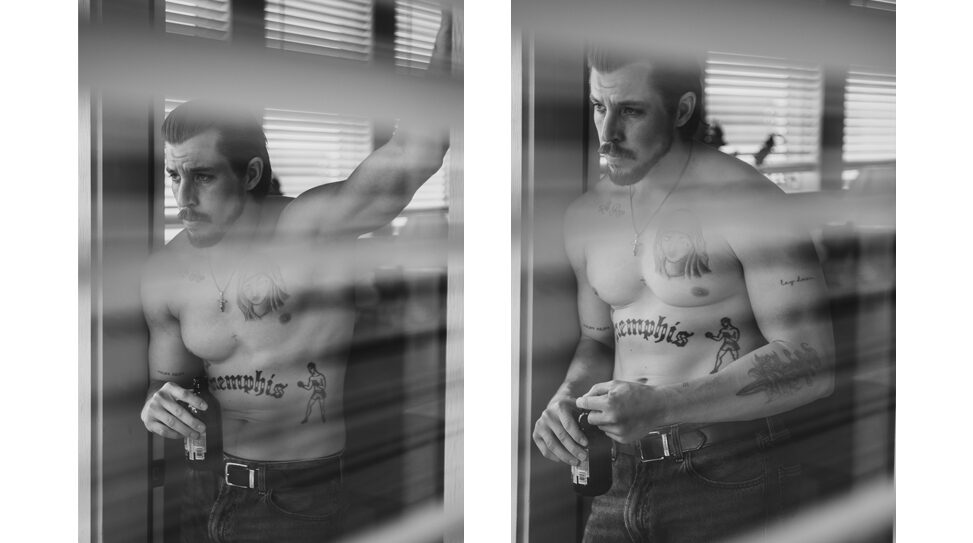
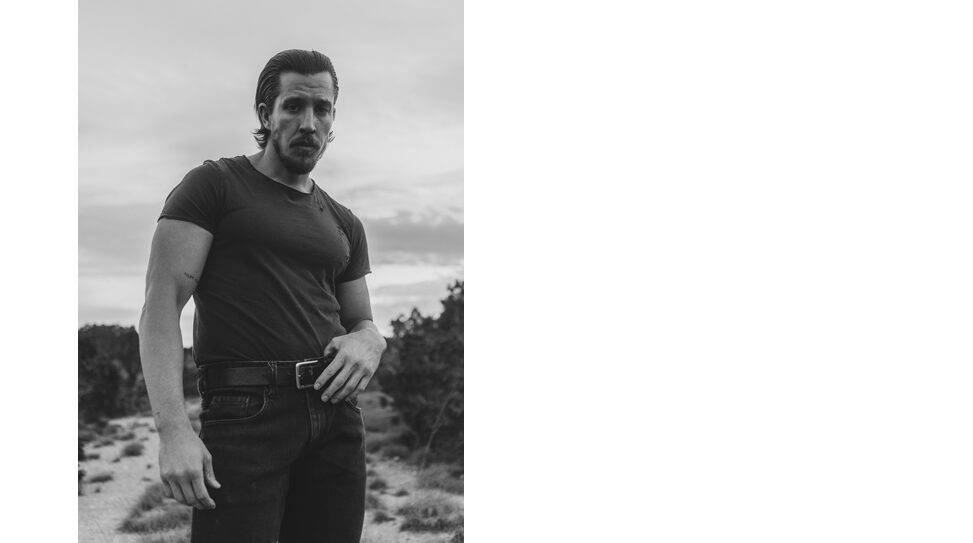
 A Conversation with Sean Wang
A Conversation with Sean Wang A Conversation with James Paxton
A Conversation with James Paxton
No Comments
Comments are closed.